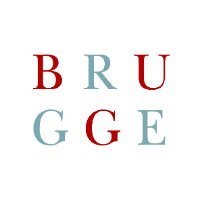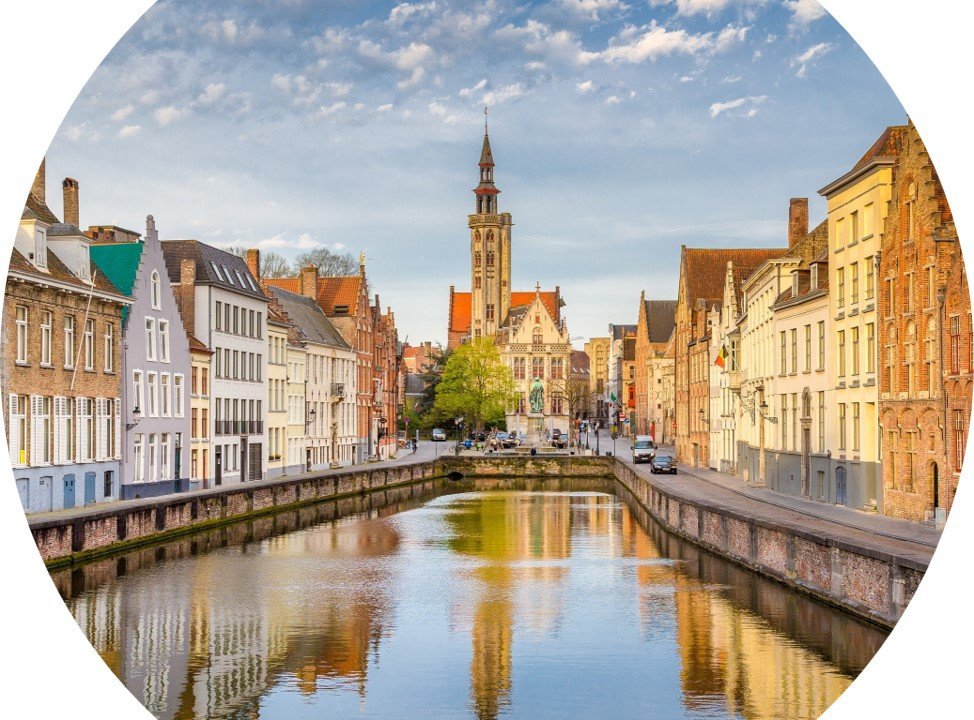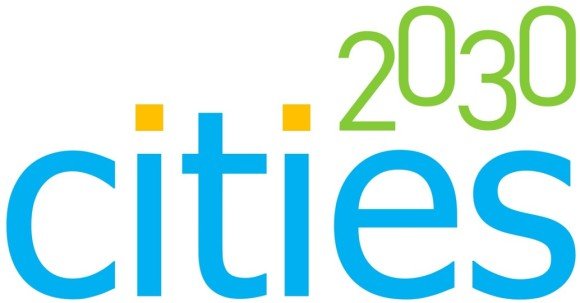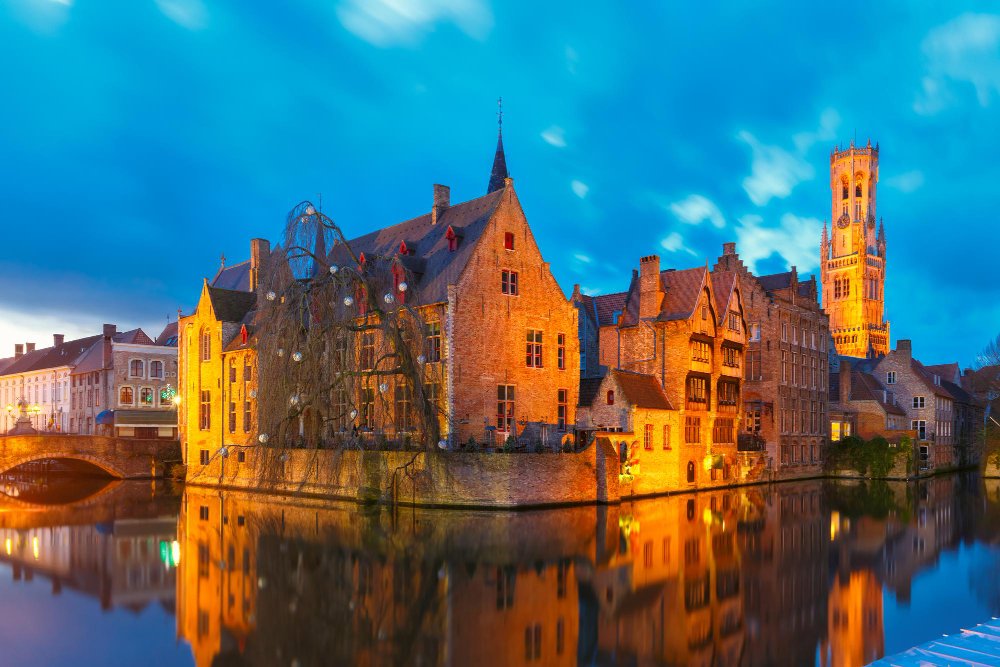- Welcome
- CRFS Description
- Living lab description
- Living: Innovation action plan
- Stories from the lab
- Lab festival
- The first experiment
- The second experiment
- The third experiment
- The fourth experiment
- The fifth experiment
- The sixth experiment
- Policy: Policy Action Plan
- Food System Dialogue
- Access history
- Members

Welcome
Bruges is a Belgian historic city at the North Sea with 120K inhabitants.
In the early Middle Ages, Bruges developed into an international and bustling trading city with its own port, made possible by its favourable location and connection with the sea. At the same time, the fortified town became a powerful political stronghold, thanks to the presence of the Flemish Counts, who ruled over the County of Flanders. In the 13th century, Bruges was the leading trade centre of northwestern Europe. Merchants from all over Europe settled in the city and the world’s first ever stock exchange was founded in Bruges. During the First World War, Zeebrugge became the operational base for the German submarine fleet, coordinated from their headquarters on the Market Square in Bruges. Fortunately, both world wars left the historic city centre virtually unscathed, making Bruges increasingly appealing to visitors and culture-lovers alike. Its beauty and attraction were confirmed in 2000, when UNESCO classified the entire medieval inner city as a world heritage site. The rest, as they say, is history.

The city of Bruges is committed to achieving climate neutrality by 2050. Our urban food system stands as a cornerstone in realizing this ambition. In 2015, a comprehensive food strategy named 'Brugge Smaakt' was collaboratively developed with local stakeholders within the food system, positioning Bruges as a member of the Milan Urban Food Policy Pact (MUFPP). Together, we are fostering a culture of consuming more local and plant-based foods, reducing waste and upholding respect for people, the environment and the climate.
Central to our initiatives is the Bruges Food Lab, and interactive network that encompasses a variety of stakeholders. This Lab functions as a source of inspiration, rallying the residents of Bruges to play an active role in molding the future of our local cuiseine. Our comprehensive food strategy extends its reach across every aspect of our community, involving citizens, the food system (raging from chefs and supermarkets to those committed to the circular economy), as well as institutions such as hospitals, schools, youth organizations and care centres.
In our Cities2030 lab, we are strengthening the pillar towards our aging population of Bruges.
Within the framework of Cities2030, the region of Bruges is represented by two project partners. Their collaboration is built upon the shared understanding that each one contributes with their available resources and expertise for the successful implementation of the project. Bruges is the only regional Cities2030 partner in Belgium but has the ambition to share and multiplicate our outcomes with other cities in Belgium. In terms of living lab activities 4 partners (City of Bruges, Ruddersstove, Mintus and VIVES) will be working closely together with many partners of the foodservice and care network in and around Bruges.
The partners representing Bruges (BRU, P03) which consist of The city of Bruges, Ruddersstove mealcare and Mintus elderly care. This collaboration aims to connect the existing policy lab and food strategy of Bruges with the execution on a daily base.
Katholieke Hogeschool VIVES (VIVES, P4), is a college University within the region West-Flanders. Within the living lab they offer support and expertise from two expertise centres linked to Vives, namely Agro- and Biotechnology and Social Innovation.
Main aim and objectives of the Living Lab Bruges
Bruges CRFS Lab promotes ecological agriculture and local commerce nationally and internationally, monitoring public sentiment and engagement to drive sustainable growth.
- Bruges is a city region where all inhabitants approached in an open and inclusive wa
- Bruges is a city region where it is healthy to work and live.
- Bruges is a city region where people do business with low impact on the environment.
The primary solutions that the lab intends to pursue during project implementation:
- Sustainable last mile delivery
- Waste Management
- Healthy place to live within the community
- Fair trade and short chain supply
- Research in the field of Food and health, Agro-Biotechnology and Social Innovation
- Transformation of service centers into community centers
Planned lab activities
- Optimizing protein intake for elderly & shift towards plant-based proteins
- Culinary upgrade on the spot
- Delivery by bike
- Sharing electrical vehicles B2B
- Intergenerational cooking
- Social integration by food

